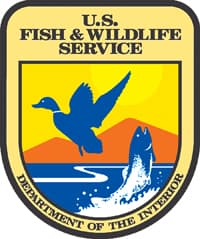U.S. Fish and Wildlife Service Awards 1.8 Million Dollars in Grants for Work on Deadly Bat Disease
OutdoorHub 06.19.14

the U.S. Fish and Wildlife Service announced $1.8 million in grants for the research and management of white-nose syndrome (WNS), a fungal infection that has killed millions of hibernating bats in eastern North America since it was first documented in New York in the winter of 2006-2007.
Funding was granted to eight projects at universities in New York, New Hampshire, Pennsylvania, Ohio, Michigan and Wisconsin. Projects include studies to better understand bat immune responses to WNS, investigations into methods to control the disease, and ways to examine the molecular infrastructure of the fungus that causes WNS (*Pseudogymnoascus destructans),* and other cave-dwelling fungi.
“Bats are fascinating animals that are vital for a healthy environment. We are hopeful that these investments into research will get us closer to getting the upper hand on this devastating disease,” said Wendi Weber, co-chair of the White-Nose Syndrome Executive Committee and Service Northeast Regional Director.
Since 2008, the Service has granted more than $17.5 million to institutions and federal and state agencies for WNS research and response. This year’s grants are the second round of WNS research funding awarded by the Service. $1.4 million was awarded to federal agencies that provided matching funds for research and response to the disease. Another $1.5 million is currently available for state wildlife agencies on www.grants.gov.
“Scientists from around the world are working together to understand this devastating disease, and to develop the tools to manage WNS and conserve our native bats,” said Dr. Jeremy Coleman, the Service’s national WNS coordinator. “Findings from past research have led to improved methods for detecting *P. destructans*; development of potential tools to slow disease spread and treat infected bats, and the development of a national bat population monitoring program.”
Funding for the grants was provided through the Service’s Endangered Species Recovery and Science Applications programs.

